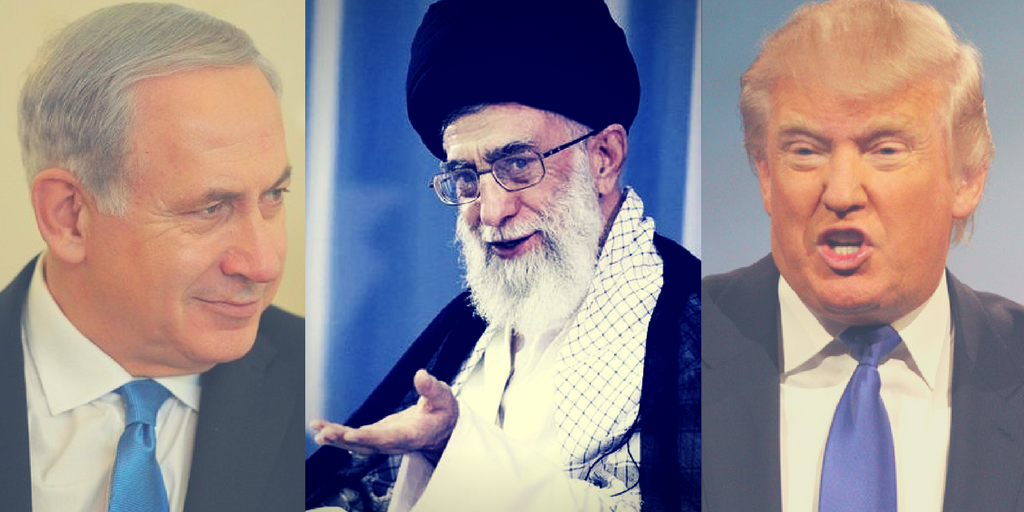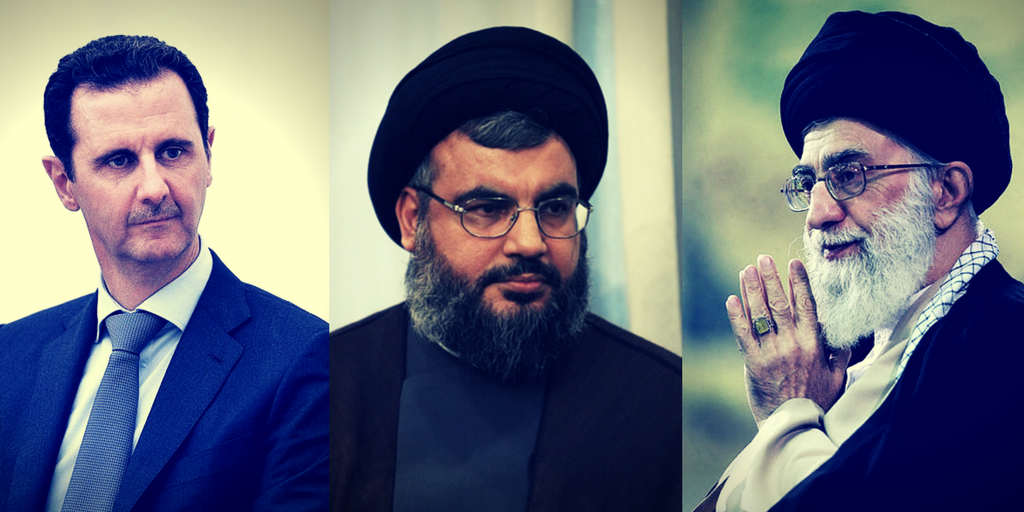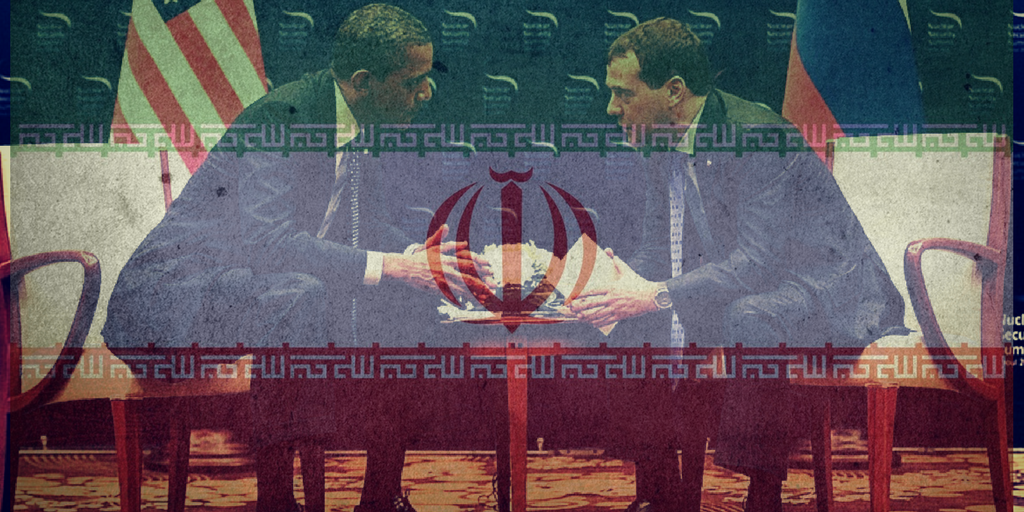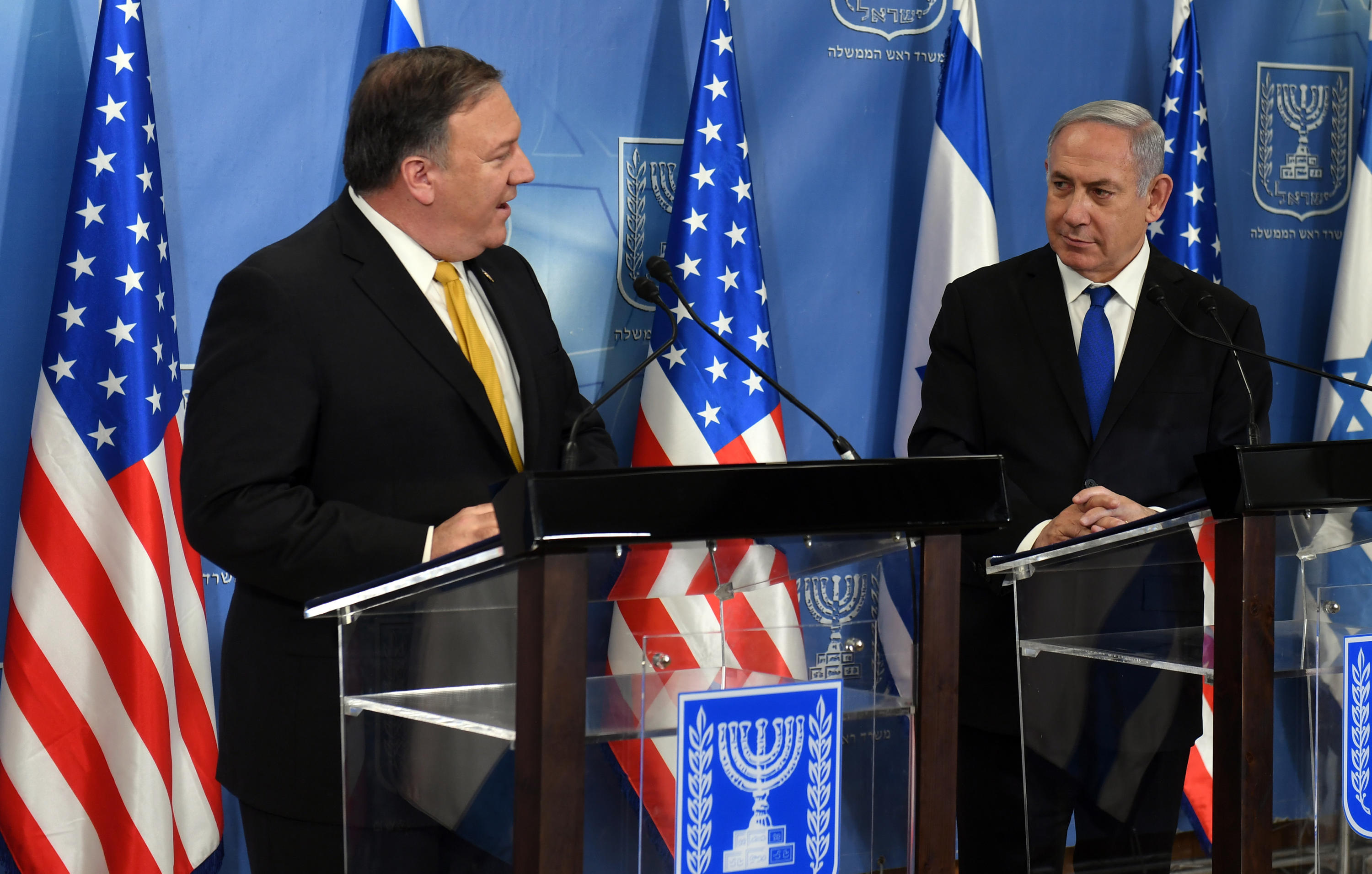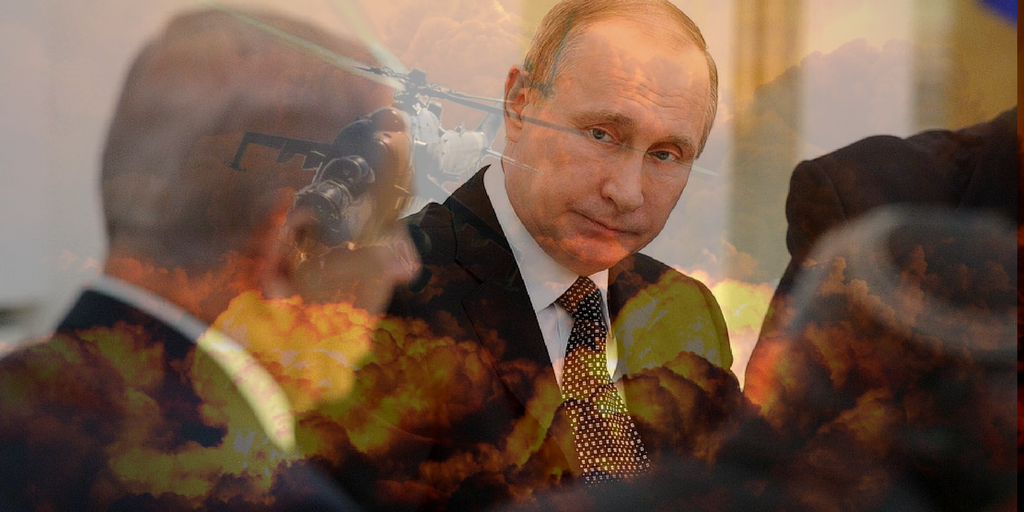If surrendering US primacy in the region to Russia was the result of US passivity and inaction, the intrusion of Iran into Syria can very definitely be attributed to ill-conceived, active American policy.
So rather than offer false promises…we have to take a long view of the terrorist threat, and we have to pursue a smart strategy that can be sustained…we have to draw upon the strength of our diplomacy…Just think about what we’ve done these last eight years without firing a shot…We’ve eliminated Syria’s declared chemical weapons program. – Barack Obama, Address on Counterterrorism, December 6, 2016.
With respect to Syria, we struck a deal where we got 100% of the chemical weapons out… – John Kerry, Obama’s Secretary of State, Meet the Press, July 20, 2014.
“We were able to find a solution that didn’t necessitate the use of force that actually removed the chemical weapons that were known from Syria, in a way that the use of force would never have accomplished. Our aim…was…to deal with the threat of chemical weapons by virtue of the diplomacy …We were able to get the Syrian government to voluntarily and verifiably give up its chemical weapons stockpile.”– Susan Rice, Obama’s National Security Advisor, NPR , January 16, 2017.
The past years have been ones of great trauma and tragedy in Syria.
Sadly, ongoing trends may well herald trauma and tragedy on even a greater scale – not only for Syria itself, but for the entire region, and well beyond.
On the cusp of catastrophic conflict
Indeed, barely five years ago, few analysts—if any—would have predicted that the world would be poised on the brink of a militarized confrontation between the US and Israel on the one hand, and Russia, Iran, Syria and possibly Turkey (perversely and paradoxically a NATO member), on the other.
Yet these are precisely the emerging contours of the conflict on whose cusp we are now perched.
Much of the blame for the unfolding drama of human misery must be laid squarely and unequivocally on Barack Obama—and his disastrous policy decisions.
The source of virtually every vector of bestial brutality that has converged on Syria in the last half-decade—and which now threaten to diverge from it and engulf others, both near and far—can be traced back to the previous administration’s foreign policy preferences.
Indeed, a straight line can be drawn from the flaccidity of the Obama positions on US military presence in Iraq and his disdainful dismissal of the threat posed by ISIS; his disregard for his own “red lines” in Syria over Assad’s use of chemical weapons, coupled with his surrender of US influence to Russia; and of course, his capitulation to the tyrannical theocrats in Tehran on Iran’s nuclear program.
After all, the substantive content of these policies were so patently divergent from their declared purpose, it is difficult to reconcile their adoption with genuine good faith—unless one assumes almost child-like naiveté or staggering ignorance, neither of which are reassuring qualities for a leader of the world’s most powerful nation.
Obama: The most Islamophilic president ever
Significantly, the consequences of Obama’s “legacy’ have been so unambiguously calamitous that even the once sycophantic Obama-phile, Jeffrey Goldberg, penned an article (The Atlantic, April 7, 2017), disapprovingly headlined: The Obama Doctrine, R.I.P. With uncharacteristic acerbity for someone once so unreservedly supportive of the former president, Goldberg admits: “The 2013 Obama-Putin deal to disarm Assad of his chemical weapons was a failure… The argument that Obama achieved comprehensive WMD disarmament without going to war is no longer, as they say in Washington, operative.”
However, I hesitate to deem these decisions “errors of judgement”, for the really disturbing thing about Obama’s foreign policy is that it is difficult to know whether the appalling outcomes they produced were the result of well-intentioned, but unintended, blunders—or of malevolent and deliberate intent.
For whatever one might believe regarding Barack Obama’s genuine religious affiliation, one thing is beyond any honest dispute: He is without doubt the most Islamophilic president to ever to hold office, unabashedly unmoored to the bollards of the Judeo-Christian legacy that has underpinned—indeed, shaped—the character of the United States since its inception. This undoubtedly colored his view of America’s national interests and the appropriate manner in which they ought to be pursued, in hues very different from any other White House incumbent.
“…Muslims built our tallest building”
Thus, in his seminal outreach address in Cairo (June 2009) to the Muslim world, which in many ways laid the corner-stone for the subsequent orientation of his administration’s foreign policy, Obama, with scant historical corroboration to back himself up, declared: “I…know that Islam has always been a part of America’s story”—adding somewhat incongruously “…Muslims have enriched the United States …They have [among other things] built our tallest building”…just a few years after Muslims knocked down two of America’s tallest buildings. No kidding!
He then proceeded to draw a highly questionable equivalence between the ethos of the US and that of Islam: “America and Islam are not exclusive and need not be in competition. Instead, they overlap, and share common principles — principles of justice and progress; tolerance and the dignity of all human beings.”
Just how ludicrous his alleged parallel is, is something I have dealt with elsewhere –see Will the West Withstand the Obama Presidency?, and will thus forego any further elaboration here. However, it would be imprudent to ignore how this clearly articulated perspective impacted his policy-making.
Few have expressed what effect this overtly professed proclivity in Obama’s political credo (conveyed in his 2009 Cairo address) had on his administration’s ensuing foreign policy more succinctly than former Israeli ambassador to the US, Michael Oren.
From Cairo 2009 to Syria 2018
In a 2015 “Foreign Policy” essay, Oren excoriates Obama’s “naiveté as peacemaker, blinders to terrorism, and alienation of allies.”
Referring to Obama’s Cairo speech and other similar remarks made at the start of his incumbency, Oren observes: “These pronouncements presaged what was, in fact, a profound recasting of U.S. policy.”
He recounts that whenever leaders “ were perplexed by the administration’s decision to restore diplomatic ties with Syria — severed by Bush after the assassination of Lebanese president Rafik Hariri — or its early outreach to Libya and Iran, I would always refer them to that text. When policymakers back home failed to understand why Obama stood by Turkish strongman Recep Tayyip Erdogan, who imprisoned journalists and backed Islamic radicals, or Mohamed Morsi, a leading member of the Muslim Brotherhood in Egypt and briefly its president, I would invariably say: ‘Go back to the speech.’ ”
In the essay, written barely a month before the July 2015 deal struck with Iran, Oren berates Obama’s “unique approach to Islam”, and his “assumption that a nuclear deal with Iran will render it ‘a very successful regional power’ capable of healing, rather than inflaming, historic schisms”, adding dryly: “That assumption was scarcely shared by Sunni Muslims, many of whom watched with deep concern at what they perceived as an emerging U.S.-Iranian alliance.”
“The Terrible Cost of Obama’s Failure in Syria”
The utter failure of the Obama doctrine can no longer be papered over. Its calamitous consequences are now beginning to be openly acknowledged in the mainstream media.
Thus, earlier this month, a withering review of what Obama has helped wreak in Syria appeared in “The Atlantic”—where the once obsequious Goldberg is Editor-in-Chief—under the caustic title “The Terrible Cost of Obama’s Failure in Syria”, detailing the atrocities inflicted on the civilian population since the administration’s glowing predictions that “we struck a deal where we got 100% of the chemical weapons out”.
But as tragic as the wholesale slaughter of civilians by Assad—once considered a “reformer”—are, there are many other grave, more strategic ramifications of the now widely discredited Obama doctrine.
The failure to assess the true nature of the threat ISIS posed in Iraq allowed the civil war there to spill over into Syria, compounding the carnage there. The uncontrolled escalation of fighting—and the absence of any US initiative to reign in Assad’s brutality—led to massive flows of refugees fleeing into Turkey and from there, into Europe—precipitating massive socio-cultural tensions across the continent, and threatening to undermine much of the domestic societal fabric.
Moreover, much like nature, politics abhors a vacuum. So when US reticence created a power vacuum in Syria, it was Putin and the Ayatollahs who were only too eager to fill it.
Freeing the Iranian tyranny from its bonds
But if surrendering US primacy in the region to Russia was the result of US passivity and inaction, the intrusion of Iran into Syria and the establishment of an ominous military presence there, together with the threat of a Shi’ite land bridge, linking Iran to the Mediterranean Coast, can very definitely be attributed to ill-conceived, active American policy.
After all, the current Iranian brazenness in Syria (and other portions of the region) would be inconceivable without the 2015 nuclear deal, ushered in by the Obama administration. Indeed, it is difficult to envisage the Iranian regime, prior to the deal, crippled by sanctions and deprived of assets, being able to orchestrate its current provocative mischief. The Obama orchestrated deal freed it from these inhibiting constraints and allowed it to pursue its global agenda of terror and aggression.
For in reality, there were only two ways to effectively restrain Tehran, force it to dismantle and discard its nuclear program, and to curtail its promotion of international terror.
In the short run, this involved maintaining—even tightening—the sanctions, which brought it to the negotiating table in the first place, backed up by a credible threat of military action against Iranian infrastructure—its dams, bridges, power plants and its tele-communication installations—in the case of continued defiance.
In the longer run, Iranian compliance with acceptable international norms can only be assured by regime-change—and replacement of the current tyrannical theocracy by rulers not driven the will to impose its fanatical brand of Islam across the globe.
Tyranny empowered, enriched & entrenched
Sadly, Obama obviated both these possibilities.
By unequivocally taking the military option off the table and relinquishing his pledge that “no deal is better than a bad deal”, he left Tehran secure in the knowledge that if the West backed away from the use of force against a weak, impoverished, non-nuclear Iran, there was little chance of it being adopted later, against a stronger, richer nuclear Iran.
Secondly, by abolishing the sanctions and freeing billions of Iranian assets, Obama empowered the current regime militarily, enriched it economically, and entrenched it politically. Thus, he inevitably made any chance of regime-change commensurately more remote.
Accordingly, without any real threat to its grip on power, the ruling tyranny was left unencumbered to pursue its malevolent designs in Syria; and together with the Russians, prop up their puppet, Assad, while developing a military presence to threaten Israel, and enhance its hegemonic aspirations across the Mid-East and beyond.
This is clearly a situation which Israel cannot tolerate, bringing the potential for large-scale militarized confrontation perilously close.
The bitter fruits of appeasement
The last great global conflict was the result of appeasement—and the attempt to assuage tyranny by concessions. In the aftermath of the Obama era, we are left to hope that yet another ill-advised attempt to appease tyranny will not precipitate yet another human catastrophe.

